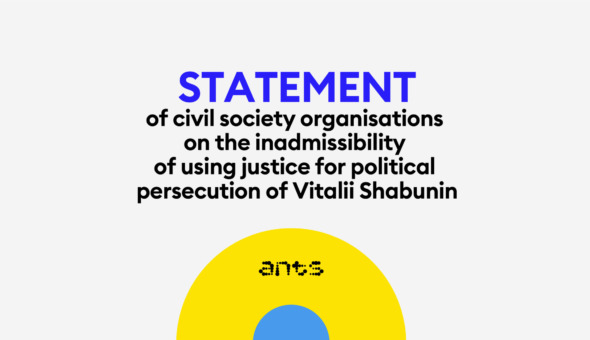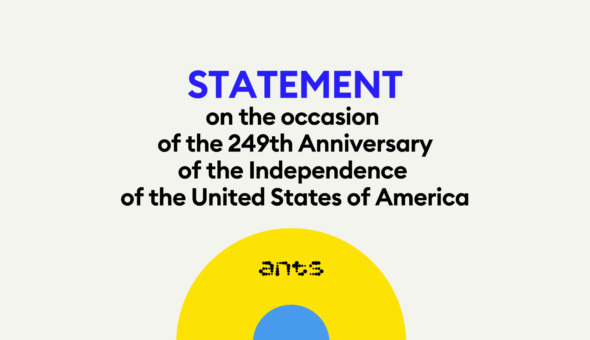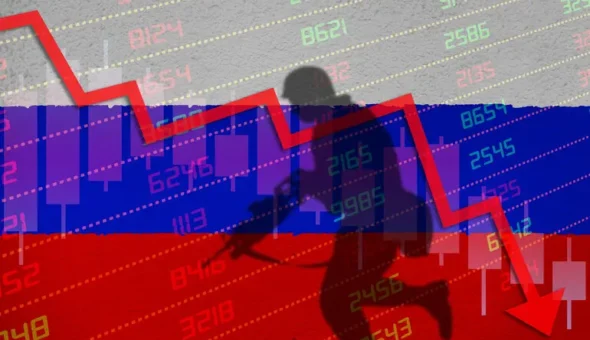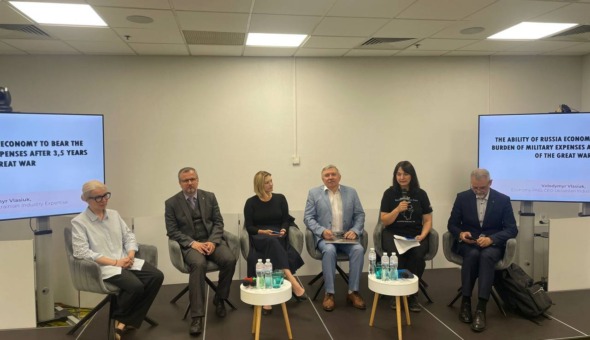
One of the most resonant legal and economic news was the refusal of the High Anti-Corruption Court (Ukr: VAKS) to meet the demands of the Ministry of Justice regarding the confiscation of the Khust and Zhezheliv quarries. These assets were planned to be seized as part of the process of confiscating the assets of russian oligarch Oleg Deripaska in Ukraine.
While the world is only discussing ways to confiscate russian assets, this process has been actively ongoing in Ukraine since the fall of last year. As part of the mechanism, in which the Ministry of Justice and the High Anti-Corruption Court play a leading role, it has already been possible to confiscate the Ukrainian assets of well-known russian businessmen Mikhail Shelkov, Vladimir Yevtushenkov, Arkady Rotenberg, and others.
However, the main argument for confiscation is the “russian trace,” namely the presence among the owners of an asset of persons under sanctions of Ukraine because of the aggression of the russian federation.
At the same time, conflicts may arise regarding the co-owners of these assets, which are not under sanctions.
The situation surrounding the confiscation of the Khust and Zhezheliv quarries, which until October 2021 indirectly belonged to Oleg Deripaska and then were sold to a group of Ukrainian businessmen, became a good illustration of such a situation.
How the deal was done
Until October 2021, PJSC “Khustskyi Karier” and PJSC “Zhezhelivskyi Karier” were owned by the Austrian construction concern Strabag SE, which has been actively working in russia since the 1990s. Its co-owner is Deripaska, who owns 27.8% of shares through the Cypriot company Rasperia Trading Ltd.
A few months before the Great War, Strabag SE sold 100% of the shares of both companies for about UAH 13 million to the Cypriot company Samsta Ltd., whose nominal owner was a German investment banker.
To finance the deal, a loan was obtained from the Liechtenstein company Financial & Investment Energy Holding (F.I.E.H.), which received both quarries as collateral for the debt.
In fact, the ultimate beneficiary of the deal was the group of companies “Kryvyi Rih Cement”, which includes Ukrainian businessmen Ihor Mazepa, Vitaliy Antonov, Vasyl Danylyak, Ihor Zavinovskyi and others, as Mazepa noted in his comments to the media.
Although this model of business purchase raises questions about transparency, it is not legally prohibited. It can be used not only to hide the owner but also to protect assets.
What the court decided
The position advocated by the Ministry of Justice in this situation was that the sale agreement was fictitious and concluded in order to remove assets from sanctions in the interests of Oleg Deripaska, who has actual control over Strabag SE and systematically removed assets from sanctions earlier.
Buyers of quarries, including Ukrainian beneficiaries, according to government representatives, acted in the interests of the russian oligarch. In addition, doubts were expressed about the market value of the deal.
The arguments of the Ministry of Justice, supported by VAKS in the first instance, although they may be justified in the context of economic counteraction to russian aggression, are not flawless from a factual and legal point of view.
Claims that the buyers of the assets acted fictitiously and in the interests of Deripaska seem weakly substantiated, given their wealth and experience in business.
The beneficiaries of the agreement themselves denied its falsity. For example, Ihor Mazepa repeatedly emphasized that the activities of both quarries were integrated into the work of the aforementioned Kryvyi Rih Cement Holding.
On June 16, the Appeals Chamber of VAKS overturned the decision of the first instance regarding the Khustskyi and Zhezhelivskyi Karier and ruled out their confiscation “due to the lack of sufficient evidence regarding the possibility of a sanctioned person to disposing of the corporate rights of PJSC “Khustskyi Karier” and PJSC “Zhezhelivskyi Karier”.
Currently, the full decision is not publicly available, but it can be assumed that it was established that the agreement was concluded in the interests of Oleg Deripaska.
Also questionable was the argument that a russian oligarch controls Strabag SE. Despite conducting business in the russian federation and a share of ownership by russians, this is a fairly well-known public company.
After the beginning of the aggression of the russian federation against Ukraine, the representative of Rasperia Trading Ltd. Thomas Bull was excluded from the Supervisory Board, and dividends are not paid in his favor.
In addition, even if the Appeals Chamber of the High Anti-Corruption Court decided to confiscate, there are doubts that this process could go smoothly. As noted above, both quarries are in lieu of F.I.E.H., which financed the deal.
According to the Law “On Pledge”, if the state confiscates the pledged property, it simultaneously compensates the damages caused to the pledge holder.
The asset purchase scheme described above could be used to protect against future losses of funds. If these assets were still confiscated, the Ukrainian beneficiaries could demand compensation from the state for the loss of collateral.
Why was such a decision made?
The key point seems to be that the attempt to confiscate both quarries from the general pool of Deripaska’s assets was a mistake. If there were suspicions that the agreement was fake, it was advisable to focus on proving this fact and to support it with more compelling arguments.
In fact, only examples of media publications, as well as certificates and letters from law enforcement agencies, and not actual evidence, were given in favor of this thesis.
There were no arguments in favor of the fact that Deripaska was the beneficiary of the agreement to circumvent sanctions. Strabag SE is a well-known public European company that has never been under sanctions, and the simple fact that a sanctioned person owns a stake in its corporate structure is obviously not enough.
Also, in this case, even theoretically, it cannot be about responsibility for non-observance of sanctions or their evasion, as currently these facts are not offenses according to the legislation of Ukraine.
In April, the Verkhovna Rada introduced a draft law on the criminalization of such facts. The EU is also on the way to increasing responsibility for evasion of sanctions, and the punishment for this may include confiscation. However, this does not remove the need for a proper assessment of the circumstances of each case and justification of the position.
What’s next
The decision of the Appeals Chamber of the VAKS can be appealed to the Supreme Court in the cassation procedure, but this does not stop its implementation: the current owners can freely dispose of the property.
Back in February 2023, Samsta Ltd. concluded an agreement with another Cypriot company Overin Ltd. on the purchase of both assets. However, this deal has been blocked pending review. By the way, it is this company that is publicly mentioned as the owner of the Kryvyi Rih Cement holding.
Now that these obstacles have been removed, the deal can be completed. Overin Ltd. itself is, at least partially, controlled by F.I.E.H.: on May 11, the Anti-Monopoly Committee approved the acquisition of 25% of Overin Ltd.’s shares. it is the company F.I.E.H.
Although in the case of the Khustskyi and Zhezhelivskyi Karier, the decision of the Appeals Chamber of the VAKS appears to be well-founded, in the future other situations may arise when it will be possible to unequivocally talk about the evasion of sanctions.
To prevent this, Ukraine should introduce legislation that would establish responsibility for such facts.
In general, the Ministry of Justice, despite the lack of personnel and high workload, should be more thorough in justifying its positions and investigating the circumstances of the case. The “russian trail” is not a universal argument for a retreat from the right of ownership, and even in the case of positive decisions of the court in the future, such owners can count on compensation for losses, which will be paid by taxpayers.
The research was carried out within the framework of the ANTS project “russian Assets as the Source to Restore the Ukrainian Economy “, which is implemented in cooperation with the National Democratic Institute (NDI) with the financial support of the National Endowment for Democracy (NED).
Author:
MARKIAN BEM
lawyer, partner at Nazar Kulchytskyy & Partners



